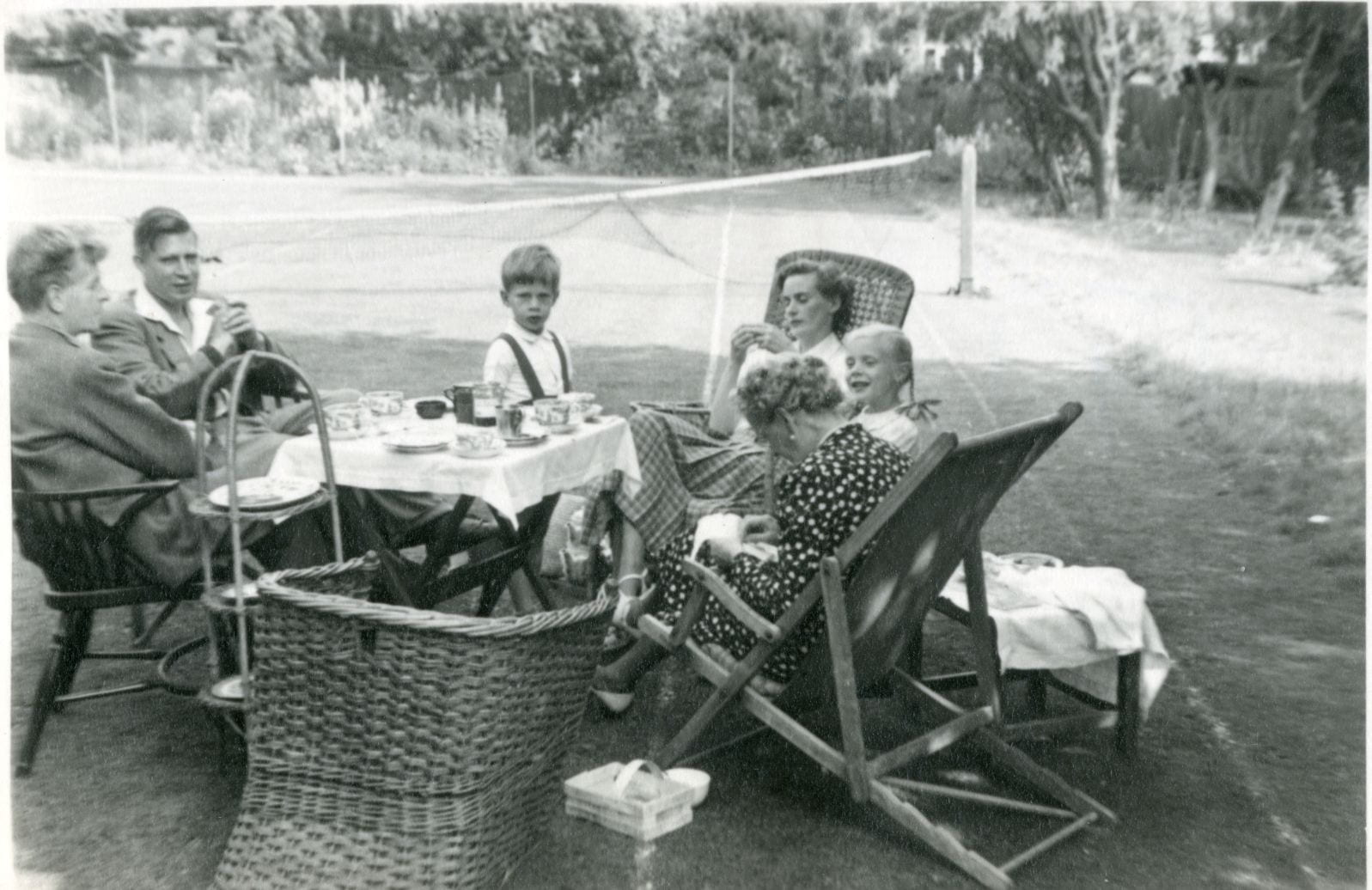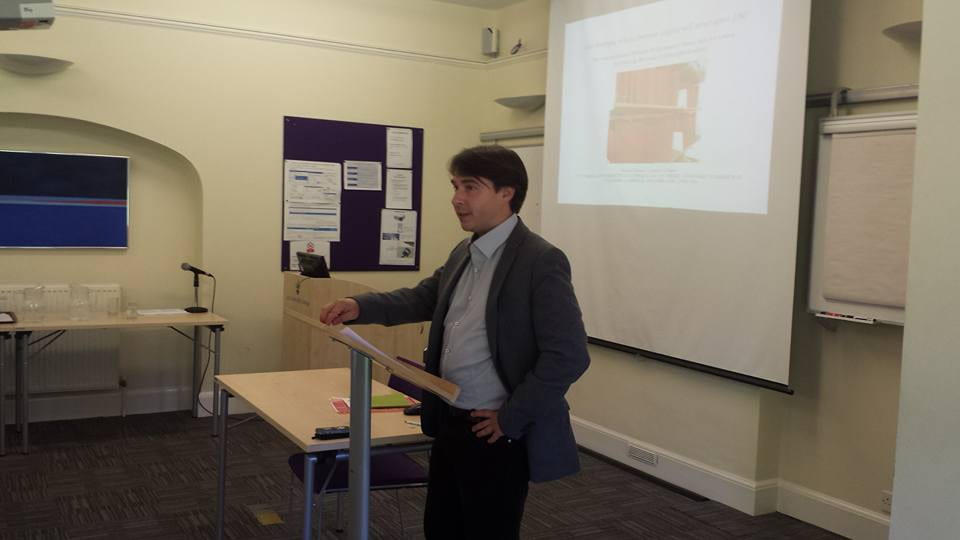by guest contributor David Loner
This past month I attended a symposium held at Lucy Cavendish College, Cambridge in memory of the Finnish logician and Cambridge professor of philosophy G.H. von Wright (1916-2003), who this June would have been 100. Titled “Von Wright and Wittgenstein in Cambridge,” the event was organized by Bernt Österman, Risto Vilkko and Thomas Wallgren (University of Helsinki) and sponsored by the International Ludwig Wittgenstein Society, the Antti Wihuri Foundation and the Oskar Öflund Foundation. For four days, philosophers and intellectual historians from Europe and the United States met at von Wright’s former residence of Strathaird to discuss topics from intellectual biography to metatextual analysis, forging a greater historical appreciation for von Wright’s life and work. In particular, by discussing his legacy as Wittgenstein’s student, participants reflected not only on von Wright’s place in the history of analytic philosophy but also his postwar ambivalence towards what I have elsewhere termed Wittgenstein’s absent-minded training regime.

Von Wright and Wittgenstein at Strathaird. By permission of the family of Knut Erik Tranøy.
Georg Henrik von Wright (pronounced von Vrikht) was born June 16, 1916 to a Swedish-speaking family in Helsinki. Influenced early in his training by the scientific philosophy of the Vienna Circle, von Wright first enrolled as a post-graduate student at Cambridge in March 1939. A student of the Finnish psychologist Eino Kaila, von Wright held an interest in the logical justification of induction, a topic he wished to continue studying as a Ph.D. student. Thus, with intelligence and affability, he would quickly gain the attention of a number of noted dons, specifically the Knightbridge Professor of Philosophy Charles Dunbar Broad. As faculty chair, Broad encouraged von Wright to attend courses and colloquia in philosophy and the philosophy of mathematics. Most notably he suggested those lectures held at Whewell’s Court in Trinity College by the recently-elected Professor of Philosophy Ludwig Wittgenstein.
Though by no means a traditional logician, Wittgenstein, by 1939, had accumulated in his Cambridge talks a retinue of devotees, each one taken by both his “overpowering personality” and cant critique of scientific philosophy as “diseases of the understanding”. In his 1990 biography of Wittgenstein, Ray Monk describes these devotees as never ceasing in their thinking “seriously and deeply” about philosophical problems. Yet, in point of fact, many of his students can be said to have strayed from their master’s treatment of the subject. To be sure, von Wright was no exception. Appreciative of Wittgenstein’s sincerity as both a philosopher and “restless genius,” von Wright nevertheless maintained scholarly priorities which stood in stark contrast to the Spenglerian pessimism of Wittgenstein’s later thought, towards a more optimistic discussions of the purchase scientific philosophy held for humanity.
Indeed, throughout his intellectual life, von Wright is said to have held a “profound respect for the achievements of the exact sciences.” This, at least, is according to Ilkka Niiniluoto, whose “opening words” on behalf of the organizers of the symposium testified to the ambivalent tone von Wright took in his reception of Wittgenstein’s later philosophy. Beginning with his 1941 Ph.D. thesis, “The Logical Problem of Induction,” and continuing well into his later studies in “deontic logic,” von Wright is said to have entertained in his research, pace Wittgenstein, questions of not only logical form but as well normative propositional coherence. What is more, due to his lifelong collegial connections with older Cambridge luminaries, including Broad, G.E. Moore and Richard Braithwaite, von Wright is known to have acquired in his role as lecturer a “fatherly” affect—quite the departure from the vociferous Wittgenstein.
This portrayal of von Wright as both erudite and accommodating was re-emphasized time and again throughout the event’s proceedings, not least by Niiniluoto’s Cambridge colleague Jonathan Smith. In his talk, “Why Cambridge?: A Historical examination of the ‘living tradition in inductive logic’”, Smith marshaled Tripos examination papers and biographical material in order to suggest that alongside Wittgenstein’s well-known absent-minded training regime there existed in Cambridge a far richer tradition of learned, mathematical-based knowledge-making, remembered as much for “its pursuit of science” as its social utility. This tradition, Smith argued, appealed as a corrective to past atomistic assumptions about logic and to Wittgenstein’s own scurrilous depictions of scientific philosophy. For, as he noted, “[t]he primacy of mathematics [in the Cambridge Moral Sciences at 1939] both starved it of students…and yet provided high-quality graduates schooled in mathematics who were drawn to logical aspects of philosophy.”
It is no coincidence, then, that while von Wright admired Wittgenstein as a great man of talent, he stood opposed to his teacher in terms of both character and method, preferring instead what can be viewed as the more congenial and practical folkways of the day. Yet despite their differences, Wittgenstein is said by all accounts to have remained fond of his Finnish pupil, who in 1948 would briefly succeed Wittgenstein as professor of philosophy at Cambridge (later resigning in 1951 in order to return to Helsinki.) “In Cambridge von Wright gained the impression that Wittgenstein greatly appreciated the substantial differences of their philosophical methods and personalities,” Bernt Österman and Risto Vilkko remarked in their memorial piece, “Georg Henrik von Wright: A Philosopher’s Life.” In fact, “Wittgenstein is reported to have said that von Wright was the only one of his students who he had not spoiled with his teaching and guidance, the only one who made no attempt to imitate his way of thinking or mode of expression.” (Osterman and Vilkko, 53). While not quite an accurate representation of Wittgenstein’s devotees, this rendering of von Wright’s post-graduate study did afford presenters a historical template from which to further problematize his later work, most notably as literary executor and editor of the Wittgenstein Nachlass.
A key facet of contemporary research in Wittgenstein studies, presenters Joachim Schulte and Susan Edwards-McKie both commented in their respective talks on the interventionist approach von Wright took to compiling Wittgenstein’s posthumous papers, following the philosopher’s April 1951 death. Culling from letters and correspondence belonging to fellow literary executor Rush Rhees and maintained at Swansea University, Edwards-McKie’s paper, “The Charged Dialectic: Von Wright and Rhees” confirmed that mathematical certainty (rather than any overriding attempt at an anti-intellectual moral epistemology) drove editors in their initial postwar conversations on composition and publication of Wittgenstein’s later writings. Meanwhile, in his talk “Georg Henrik von Wright as editor of Wittgenstein’s writings”, Schulte recalled from his own experience as a pupil of von Wright’s the numerous exegetical “modifications” the philosopher would take in pairing together such otherwise under-developed texts as Remarks on the Foundations of Mathematics (1956) and Philosophical Grammar (1969). Altogether, presenters attested that under von Wright, Wittgenstein’s original aspiration—to establish a thoroughly non-academic form of “doing philosophy”, divorced from the “mental cramps” which persisted throughout the practice of logic—would by 1969 transform into a sub-discipline of its own—a discipline which was at once specialized, routinized and authorial, all those things which Wittgenstein, in life, had denounced as unbecoming of philosophy.

Speaker Christian Erbacher giving his talk. Author photo.
How exactly such a transformation was allowed to occur in the first place was thus the topic of speaker Christian Erbacher’s concluding keynote address, “The correspondence between Wittgenstein’s literary executors—a source for studying the work of philosophical editors”. Convinced of the presence of an “asymmetry” in the correspondence shared between von Wright and fellow editors Rhees and Elizabeth Anscombe, Erbacher identified in his talk several key moments in the “history of reproducing Wittgenstein” wherein von Wright took a decisive lead. Chief among them was the 1968 codification of Cornell University’s Wittgenstein microfilm collection. Fascinated by the “externalities” of Wittgenstein’s writings, most notably their classification and historical “strata”, von Wright was said to have, in his concern for curation, shared affinities with the archivist, setting him well apart from Rhees and Anscombe, each of whom were often overwhelmed by the task of deciphering and setting to order Wittgenstein’s unfinished manuscripts. In cooperation with Wittgenstein’s most renowned American pupil, Norman Malcolm, then, von Wright, in 1966, would set to work on a Cornell edition of the Wittgenstein Nachlass. Reproduced via microfiche, the Cornell set enabled von Wright to at once disseminate Wittgenstein’s posthumous papers to a much wider audience of philosophers and accommodate those academics already committed in their own work to the further elaboration of his and Anscombe and Rhees’s published accounts. According to Erbacher, all of this, in addition to von Wright’s own enumeration of the Nachlass’ contents, provides insight into the mechanisms of Wittgensteinian philosophy’s disciplinary formation, insofar as it offers a “‘blackbox’ of paradigms in the humanities”; that is, von Wright’s efforts bear witness to students’ active rehabilitation of Wittgenstein’s work well after his teacher’s own failure to codify his adversarial ethos of discipleship as a viable teaching method in philosophy.
The ambivalence von Wright held towards Wittgenstein’s absent-minded training regime thus points to a tension within the history of analytic philosophy that no metaphilosophy of “family resemblances” can adequately describe without mistaking real institutional upheaval for a “robust distinctive phenomenon”. For while philosophers and intellectual historians may insist that Wittgenstein’s later philosophy reflects a continued attempt to do away with “the sickness of philosophical problems,” at the same time they remain staunchly opposed to the idea that analytic philosophy’s postwar “web of beliefs” failed to convey a congenial and scientifically-conscious means of doing philosophy. As I hope my remarks on this symposium have shown, greater attention to the international academic culture and reputation of Cambridge at mid-century, and to the influence it held over students’ own professional identity formation, might very well offer the means by which to begin to circle this. For in treating von Wright on his own terms, we begin to recognize the greater curricular space that acolytes of Wittgenstein straddled in their careers as keepers of the language games.

Conference participants gather outside Strathaird. Author photo.
David Loner is a third-year Ph.D. student in history at the University of Cambridge. His research focuses on the disciplinary formation of Wittgensteinian philosophy and the changing parameters of student-instructor collaboration in the twentieth century Moral Sciences at Cambridge. He can be reached at jdl50@cam.ac.uk.



Leave a Reply